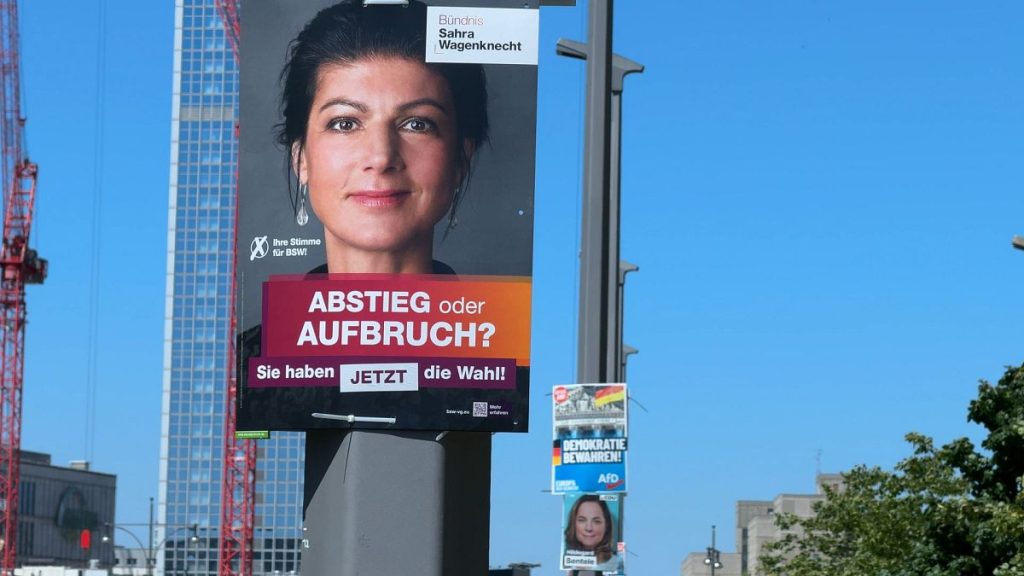BSW, a newcomer to German politics, was formed in January of this year and has already won its first victory in Thuringia. Led by self-described left-wing conservative politician Sahra Wagenknecht, the party has splintered off from the German Die Linke party and aims to split the far-right vote by potentially winning seven seats in the upcoming European elections. Wagenknecht advocates for policies such as raising the minimum wage to €15 per hour and opposing weapon deliveries to Ukraine, positioning BSW as an alternative to far-right parties that threaten to gain traction in the European Parliament.
During a campaign rally in Hamburg, Wagenknecht criticized the current government’s handling of the economy and budget allocation, as well as their support for weapons deliveries. The party’s leading candidate Fabio De Masi also called for transparency regarding stock purchases by politicians, highlighting corruption at the federal level. BSW’s strategy of promising higher taxes on large companies and wealthier individuals has resonated with voters, leading to the party’s first victory in Thuringia and the appointment of its first mayor in Bleicherode.
Supporters of BSW at the Hamburg rally expressed their intention to vote for the party, citing Wagenknecht’s intelligence and reasonableness. Many attendees expressed concerns about the direction of the current government and political climate in Germany, with a focus on issues such as Ukraine peace negotiations and stopping weapon deliveries. The BSW’s success in local elections and the positive response from voters indicate a growing momentum for the party in challenging the status quo and addressing key policy issues that resonate with the electorate.
While BSW could emerge as a significant far-left force in the European Parliament and seek to form a left-wing faction, Wagenknecht has expressed disagreements with some members on issues such as migration. Her hard-line stance on immigration has caused tensions with Die Linke and may pose challenges in forming a left-wing bloc after the elections. Despite these potential obstacles, Wagenknecht has positioned her party as a unique blend of socialist economic policies and conservative attitudes towards immigration, appealing to a segment of the population seeking an alternative to mainstream political parties.
Experts predict that BSW could attract far-right voters in upcoming European elections by offering a platform that addresses concerns about the economy, budget allocation, and weapon deliveries. Wagenknecht’s ability to resonate with voters who feel disillusioned with the current political landscape suggests a growing appeal for the party as it works to establish itself as a viable alternative to traditional parties. With its recent success in local elections and strong support from supporters, BSW is positioning itself as a potential contender in the European Parliament, challenging the dominance of far-right parties and advocating for a unique blend of left-wing and conservative policies.


